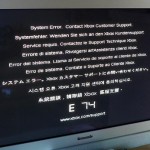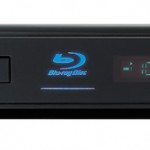After last week’s WNR non starter, there’s definitely more news this week. And big news as well, as you will read later on. I posted something that looked very much like an advertorial for Amazon. But no, I was sadly not paid to write that piece, and while I do earn affiliate credits, you’ll find no such link in that particular blog post. What I posted is what I really feel, due to a recent incident involving a slightly damaged item, and I think it’s very hard these days to find a company that values the customer experience more so than the bottom line.

Let’s start with the copyright news. The big news of the week, and you will most likely have heard about it already, is of course Macrovision’s purchase of metadata firm Muze. Not the big story you were expecting huh? I guess I’m just a little hesitant to get to what is essential pretty bad news for everyone (we’ll come back to the Macrovision story later on).
In mid-week, the news was that a verdict was due on Friday for the The Pirate Bay trial. Everyone eagerly awaited this news for the next few days, but when it hit, and although you can’t say it’s a huge surprise, it was still somewhat of a shock. The guys of The Pirate Bay were found guilty, each sentenced to a year in prison and fined $3.6 million. Was there ever a chance of another decision? But even so, the severity of the judgement meant that it was like a MPAA wet dream. But all is not lost. Cynthia, our forum’s Swedish expert, explains just what will happen next in the Swedish justice system:
The first instance in the Swedish trial system is based on one Judge + 3 political elected “ordinary” people. The next step is to go to the higher court and that one is 3 judges + 2 political elected “ordinary people”. Most certainly this case will also end up in the highest court and in that one is at least 9 judges.
So the final verdict will take some years to come and during that time it looks as it will be business as usual from TPB.
So this is by no means a final verdict. In fact, even has the TPB guys won, the decision would still have been appealed all the way to the highest court and it might be years before we finally know what the outcome could be. For now, TPB remains as it is, still offering thousands of torrents and a huge user base that is slowly moving towards anonymous file sharing, which will become impossible to track. So round one goes to the MPAA (or the Swedish equivalent/puppet organisation), but this one could still go either way.
Going back to the Macrovision story. It appears they’ve purchase Muze, which collects and makes available meta data (or descriptive data) for media such as DVDs. What this means is that Macrovision could incorporate this into DVD players, and it would open up a new revenue stream for the company by putting in ads when you play DVDs that will recommend other movies based on what you’re watching. Privacy issues aside, this could become even more annoying than Macrovision analogue protection.
The MPAA’s use of hacking to retrieve information to sue the likes of TorrentSpy and TPB could come back to haunt them. Apparently, they used the services of a hacker to steal confidential information from these sites to use in their court case, and this illegal act could be used as a way to appeal the verdict, at least in the TorrentSpy’s case. Data theft is an even more serious problem than content theft on the Internet, and it just goes to show how low the MPAA may go to achieve their ultimate victory of stopping the well known torrent sites (of course, it won’t stop new torrent sites to be set up, many of which are already waiting in the wings in case the big ones fall).
And in news that suggests DRM is still alive and well in the video arena, BBC’s UK HDTV broadcast will now employ DRM because this was the only way to allow Blu-ray recorders into the market. There will be tons of restrictions on what you can and cannot record, and how you can use the recorded content, which makes the whole thing all so useless to most users that they will probably go back to DVD recording (another victory for DRM over Blu-ray!). DRM is harmful not only to the sanity of the consumer, but it appears it is also harmful to entire industries. If Blu-ray recorders fail to sell because of these restrictions, then that will hurt the Blu-ray format, and also hurt the very same content owners that want to place these restrictions. Very short sighted thinking that will lead them to their doom if they do not change ways, like the music industry has had to do at the cost of wasting millions of dollars on useless DRM and lost of business.

Onto high-def news, another form of DRM is region protection. DVD region protection proved to be the single most useless “feature” of the DVD format. And even the movie studios themselves eventually saw region control as fairly useless, as more and more movies are now released simultaneously around the world.
So it was no surprise that region control went from mandatory to optional on the Blu-ray format, and completely removed from the HD DVD specs. Unfortunately, for some studios, “optional” was not in their vocabulary. And I’m mainly talking about Fox here. All Blu-ray movies from Warner (not including subsidiaries, some of which still employ region locking), Universal and Paramount are now region-free. Most Sony releases are region-free as well, with only certain new releases being locked. Disney is similar as well, except more of their titles are locked. The situation, you can say, has become even more confusing, because if you randomly buy some movies from the store, half of them might play overseas, while the other might not.
The good news is that the first factory produced region-free Blu-ray player is soon to be available (not really though, because there had been players manufactured for certain countries that were region-free). Momitsu may not be a brand that everyone’s heard of, but it is a brand I’m familiar with as this was the brand of my first DVD upscaling player. Even then, they were pushing the boundaries by producing a DVD upscaler that could upscale over component and unprotected DVI output. It was also DVD region-free, of course. Their new region-free Blu-ray players seems to have all the features that you would want, plus of course the ability to play *any* Blu-ray movie you buy anywhere. For now at least, before the studios update their code perhaps to lock out Momitsu players. But hopefully, this will be a catalyst for more companies to start releasing region-free Blu-ray movies, which should be much less of a deal than region-free DVD players as it affects less movies.
![]()
And finally, we get to Gaming news. The March NPD figures are out and it was a particularly bad month for the video gaming industry, at least in terms of hardware numbers. There were unexpected drops for almost all the game consoles, and perhaps it’s a sign that the economy is finally catching up with the gaming industry, which looked recession proof for the last 6 months. However, Microsoft’s Xbox 360 still managed to record a year-on-year growth, and as it is the cheapest console now available, perhaps that’s not too surprising. The full analysis will be coming early next week right here, of course. The PlayStation brand is still struggling, although it is doing well in Japan, but that’s what you get if you don’t give users a price cut. Sony will tout their superior attach rate for selected multi-platform hit titles, but overall attach rate still goes to the 360, and these “selected multi-platform hit titles” are still too rare to make any point.
And with this news, Microsoft have confidently proclaimed that they have won the console war. Well, second place anyway. I don’t know if this is perhaps a bit too early, but they’ve certainly made great strides compared to the last generation where the superior Xbox was beaten by the cheaper PS2 which was released earlier. Sounds familiar?

Microsoft's RRoD and E74 errors gets more publicity, but the PS3's firmware bricking problem is serious and real
But it’s not all good news for Microsoft (although you can argue it is good news for Xbox 360 owners), in that they have finally admitted that the other 360 hardware error, the E74 error, is part of the RRoD problem and will now be covered by the extended warranty. While you can’t argue with the fact that the 360 just isn’t a very well designed console, but at least Microsoft’s response to the problem, albeit a bit late on all fronts, is encouraging. Now if only Sony come clean on their firmware update “no disc drive” problem (and now, there are new problems involving fast spinning fans and then shutdown, to do with the latest 2.70 firmware) that you will see thousands of posts on the official PS board with not a single official response. And the other fanboy comments that say “your stupid and you don’t no how to use your PS3” whenever someone posts a serious question about this problem is quite annoying. Yes, most of the posters of these problems are first time posters because like many people, myself included, I only signed up the PS3 board after I had a problem that I wanted to find out more information about. It’s not spamming, it’s not trolling, and the fanboy-ish reactions are really typical of the fever in which some people “support” their consoles. There are serious problems with the PS3 firmware update system, and you can go through the boards and see software engineers and other experts all chime in with their theory of why this is the case. Even for such a small blog such as this one, there’s already several people who have reported the same problem, so I think the problem could be affecting hundreds of thousands of machines. Sony needs to act now and stop charging people $150 to repair a problem that may not be their fault.
So that’s my rant over for this week. Maybe I should rename this the Weekly News Rant. Ranting is good for the soul, good for your health. Or is that venting? Is venting and ranting the same? Am I ranting now? Or is that rambling? Why are there so many question marks in this paragraph?



